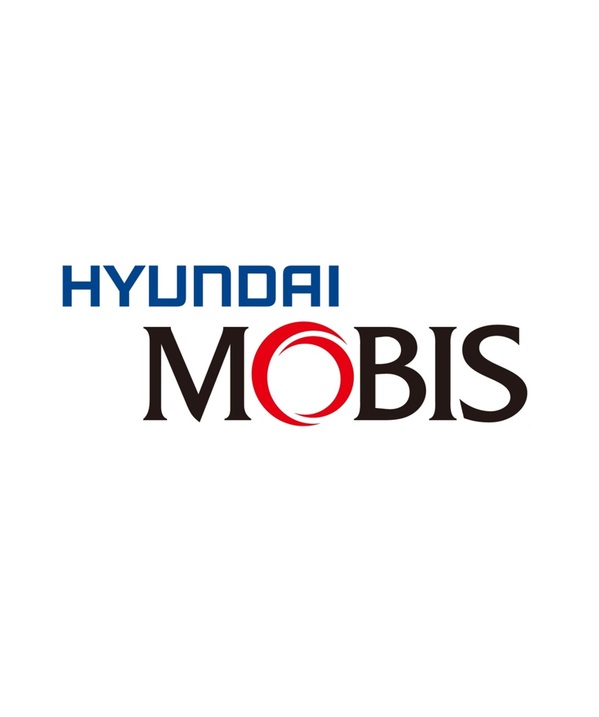Aiming for 8% Annual Revenue Growth and Operating Margin of 5~6% by 2027! - Held the 2024 CEO Investor Day on the 19th … Targeting 40% of global OE sales in auto component manufacturing by 2033

Aiming for 8% Annual Revenue Growth and Operating Margin of 5~6% by 2027!
- Held the 2024 CEO Investor Day on the 19th … Targeting 40% of global OE sales in auto component manufacturing by 2033
- Focusing on securing leading technological competitiveness and improving business structure centered on profitability to achieve a TSR of over 30%
- Strengthening high-value lineups such as EMB and SBW utilizing electrical signals to attain a 10% global chassis safety market share by 2030
SEOUL,South Korea,Nov. 19,2024 -- HyundaiMobis is embarking on improving its business structure centered on profitability,leveraging its leading global technological competitiveness. Through this initiative,the company has presented its mid-to-long-term business objectives to achieve an average annual revenue growth of 8% and an operating margin of 5~6% by 2027. Specifically,by 2033,Hyundai Mobis aims to increase the global automaker customer share in its auto component manufacturing sector from the current 10% to 40%. Based on this growth,the company also plans to achieve a Total Shareholder Return (TSR) of over 30%,thereby pursuing a balanced and proactive shareholder return policy.
On the 19th,Hyundai Mobis hosted the 2024 CEO Investor Day at the Fairmont Hotel in Yeouido,Seoul,with investors,analysts,and credit-rating agents in attendance. Lee Gyusuk,President and CEO of Hyundai Mobis,unveiled the company's mid-to-long-term growth direction and comprehensive strategies. The event proceeded with each fundamental division explaining their execution plans to achieve the strategic goals.
Expanding to Achieve an Average Annual Revenue Growth of 8%,Operating Margin of 5~6%,andTSR of Over 30% by 2027
Firstly,Hyundai Mobis declared its intention to raise the average annual revenue growth rate to over 8% by 2027,marking the company's 50th anniversary. For profitability,the company set a target operating margin of 5~6%. By maintaining the sales growth that has driven the company's external expansion and bringing the operating margin back on track,Hyundai Mobis presented an aggressive goal to balance revenue and profitability.
Notably,the large-scale investment projects carried out in recent years have translated into revenue growth,making the company reduce cost burdens and enter the recovery cycle. President Lee Gyusuk emphasized,"With revenue growth becoming substantial around high-value core components,we anticipate qualitative growth based on profitability," adding,"Leveraging our leading technological competitiveness,we will expand the global automaker sales share in the auto component manufacturing sector to 40% by 2033,propelling us to become a top three automotive supplier."
Hyundai Mobis is committed to balancing business growth with shareholder return policies. On this day,the company announced plans to expand its current TSR of 20% to over 30% within the next three years. TSR represents the total return shareholders expect over a specific period,considering dividends and share buybacks or cancellations. As part of this initiative,Hyundai Mobis revealed plans to cancel its currently held treasury shares over the 3 years.
The Dual Pillars of Value-Up: Securing Leading Technological Competitiveness and Enhancing Business Structure Centered on Profitability
Hyundai Mobis's strategy to secure market-leading technological competitiveness is based on its efficient response to the mobility trend of Software-Driven Vehicles (SDV),grounded in electrification.
Firstly,in the electrification sector,Hyundai Mobis plans to consolidate its leadership by proactively developing optimized products that meet market demands,such as Extended Range Electric Vehicles (EREV) and Economical Electric Powertrain (e-PT) systems. The EREV,aimed at addressing the transitional phase of electric vehicle adoption,is currently undergoing design verification and evaluation,with mass production targeted for the end of 2026.
The company is also proactively enhancing the stability of its battery systems to prepare beyond the chasm phase. Concurrently,Hyundai Mobis has announced plans to expand its lineup of e-PT systems,a core technology in the electrification business. By next year,the company intends to develop an economical 120kW e-PT system,which is priced at approximately 70% of the current 160kW systems dominating the electric vehicle market. This development targets concentrated efforts in small EV-centric markets such as Europe and India. Additionally,the 250kW e-PT system for large EVs is in the final stages of development,and the company is actively pursuing orders from premium global automakers.
In the electronics sector,Hyundai Mobis focuses on providing innovative solutions that encompass both hardware and software,such as integrated control platforms and unified infotainment systems,enabling flexible responses to SDV demands.
Within the chassis/safety sector,the company is strengthening its high-value product lineup with electronic braking systems (EMB) and steering systems (SBW),replacing mechanical components with electrical signals. This focus aims to position Hyundai Mobis as a leading player in the next-generation solutions market. President Lee Gyusuk stated,"Based on this enhanced competitiveness,we aim to achieve a 10% global market share in the chassis safety sector by 2030."
Hyundai Mobis plans to optimize its business portfolio by categorizing it into growth businesses (electrification and electronics) and stabilization businesses (modules,chassis,safety,lamps,and service components). Growth businesses will concentrate on securing technology and expanding market presence,while stabilization businesses will focus on enhancing profitability.
Achieving Carbon Neutrality Including Supply Chain by 2045 … Continuously ExpandingESG Management
At the event,Hyundai Mobis announced its commitment to ESG management,aiming to realize mobility through responsible innovation and clean technology. The company plans to achieve a 35% renewable energy transition rate by 2025 and increase the sustainability audit rate of its manufacturing sites to 100% by 2025 and its component sites by 2027.
Hyundai Mobis will also enhance the transparency of its decision-making processes. From 2025 to 2027,the company will disclose the results of external evaluations related to board management,thereby expanding communication with stakeholders.

